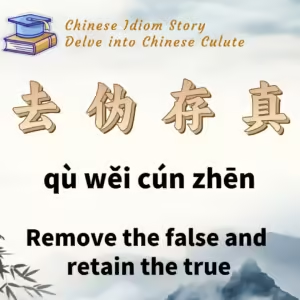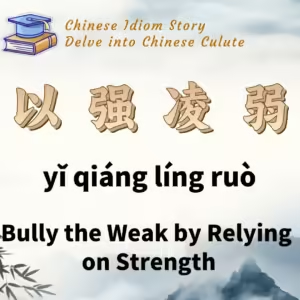
Chinese Idiom: 徒劳无功 (Tu Lao Wu Gong)
English Translation: Futile Efforts
pīn yīn: tú láo wú gōng
Idiom Meaning: This idiom metaphorically describes situations where one expends effort without achieving any results or benefits. The word “徒” signifies “in vain” or “merely,” while “无功” means “without any achievement.”
Historical Source: The phrase originates from Zhuangzi (《庄子·天运》), a foundational text of Daoism.
Idiom Story:
The story begins when Confucius (孔子) decided to leave his home state of Lu (鲁国) to travel to the state of Wei (卫国) for diplomatic purposes. One of his devoted students, Yan Hui (颜回), was concerned about his teacher’s journey and approached an official named Shi Jin (师金) in Lu to inquire about the prospects of Confucius’s mission.
Shi Jin shook his head and responded, “It will not be successful.” He explained his reasoning by using a metaphor about transportation. He said that while boats are the best means of travel on water and carts are best on land, trying to use a boat on land is futile. He remarked, “Just like pushing a boat onto dry land, it won’t get far and will be an effort in vain.” This statement highlighted the absurdity of applying outdated ideas to new circumstances.
The essence of Shi Jin’s advice was that Confucius’s attempts to persuade others with his old ideas might not work in the current context. Society had changed, and the methods that may have been effective in the past would likely not yield results in the present.
From this story, the phrase “徒劳无功” emerged, serving as a caution against engaging in efforts that are misaligned with the current situation or context. It emphasizes the importance of adapting one’s approach rather than relying on outdated methods.
This idiom reminds us that effort must be directed wisely and contextually; otherwise, it may lead to futile outcomes and wasted energy.






